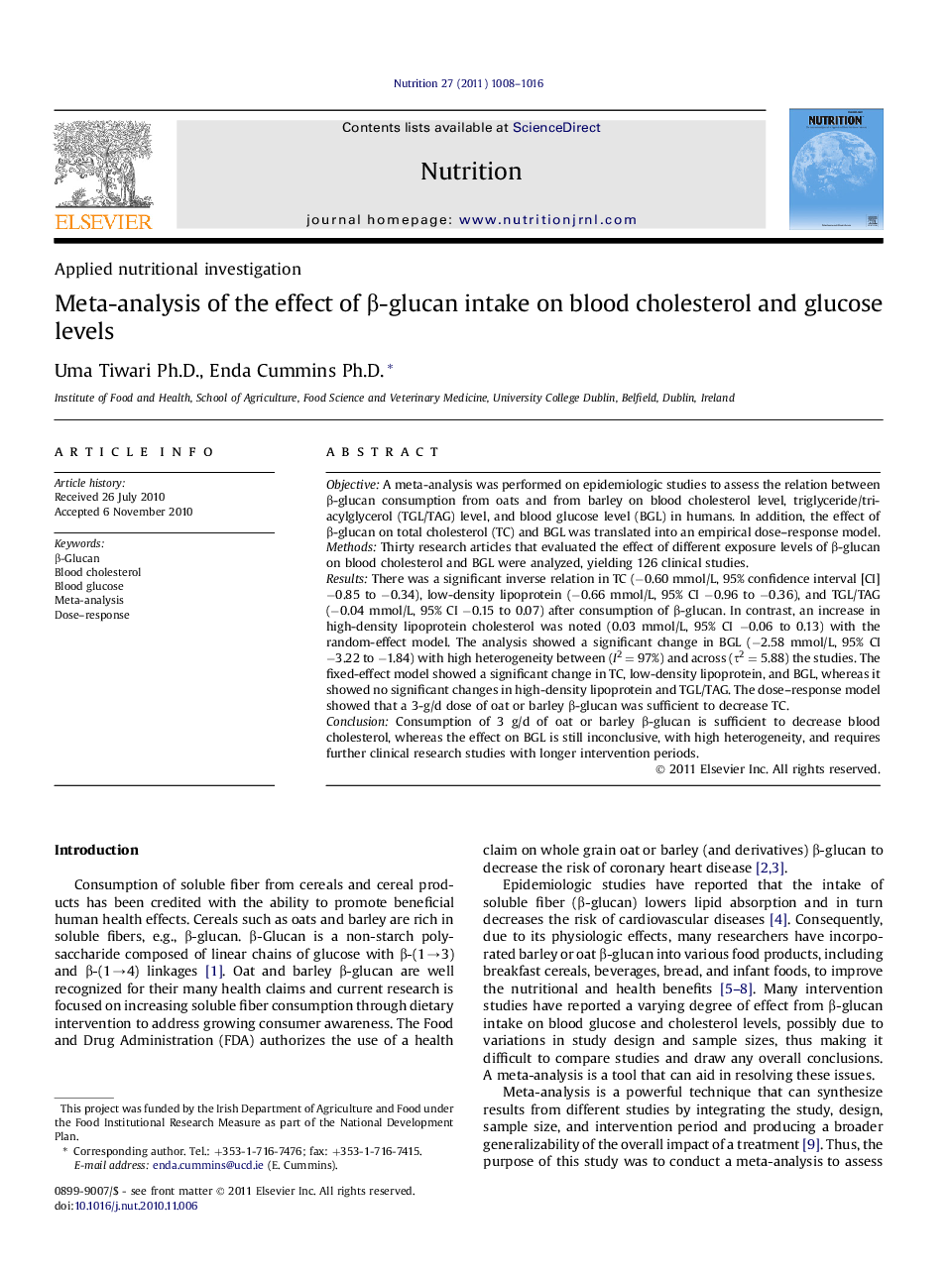| Article ID | Journal | Published Year | Pages | File Type |
|---|---|---|---|---|
| 6090518 | Nutrition | 2011 | 9 Pages |
ObjectiveA meta-analysis was performed on epidemiologic studies to assess the relation between β-glucan consumption from oats and from barley on blood cholesterol level, triglyceride/triacylglycerol (TGL/TAG) level, and blood glucose level (BGL) in humans. In addition, the effect of β-glucan on total cholesterol (TC) and BGL was translated into an empirical dose-response model.MethodsThirty research articles that evaluated the effect of different exposure levels of β-glucan on blood cholesterol and BGL were analyzed, yielding 126 clinical studies.ResultsThere was a significant inverse relation in TC (â0.60 mmol/L, 95% confidence interval [CI] â0.85 to â0.34), low-density lipoprotein (â0.66 mmol/L, 95% CI â0.96 to â0.36), and TGL/TAG (â0.04 mmol/L, 95% CI â0.15 to 0.07) after consumption of β-glucan. In contrast, an increase in high-density lipoprotein cholesterol was noted (0.03 mmol/L, 95% CI â0.06 to 0.13) with the random-effect model. The analysis showed a significant change in BGL (â2.58 mmol/L, 95% CI â3.22 to â1.84) with high heterogeneity between (I2 = 97%) and across (Ï2 = 5.88) the studies. The fixed-effect model showed a significant change in TC, low-density lipoprotein, and BGL, whereas it showed no significant changes in high-density lipoprotein and TGL/TAG. The dose-response model showed that a 3-g/d dose of oat or barley β-glucan was sufficient to decrease TC.ConclusionConsumption of 3 g/d of oat or barley β-glucan is sufficient to decrease blood cholesterol, whereas the effect on BGL is still inconclusive, with high heterogeneity, and requires further clinical research studies with longer intervention periods.
